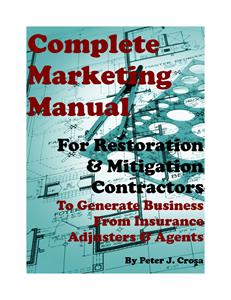Working For Your Father




On the return leg of a west coast business trip last year, I was pleased to be the benefactor of a rare first class upgrade. Shortly after getting situated firmly in Seat 1A, a quiet, middle-aged gentleman took the seat next to me. We exchanged pleasantries, names, hometowns, purpose of travel, etc.—pretty normal stuff for a long flight. He was an independent consultant who was working with a construction company on a large high-rise commercial project. With a PhD in Psychology and an MBA, he was hired to work with the chief executives of both the client company and the building owner to make sure they didn’t kill each other during the course of the project.
After two hours of flight time, the conversation steered toward our upbringings and the impact they had on our working careers. We discussed everything from the steadfast disciplines of attending Catholic grade schools to the competitive spirit of youth sports. When the topic turned to parental influence, he asked me why I work for my father. Without really thinking about the depth of the question, I replied “I don’t work for my father. I work for Violand Management.” Without missing a beat he responded, “You have been working for your father your entire life.”
BAM! There it was. All of my professional motivation laid out before me in just ten simple words. So I got to thinking. When it comes to parental influence in businesses, there are two types of people in this world: those who work for their father under the traditional employer/employee relationship and those who do not. On the surface it seems like a very easy distinction. However, when you consider the struggles and challenges associated with working in family businesses, there must be deeper motivational factors than just blood and money that drive children to work for their parents. Furthermore, if that is true, then don’t those motivational factors influence everyone in the workforce to one degree or another?
I want to be my father
The most obvious of these motivational factors is the role model. Taking cases of extreme hardship out of the equation, most young children look at their parents as heroes, regardless of their occupations. We look up to them. We emulate their behavior and adopt their beliefs and disciplines. As we grow older and become more experienced, we may challenge those views, but in the end, if our parents continue to exhibit the heroic characteristics we observed as children, we eventually strive to become the role models they truly are.
I recently interviewed a young business owner about the rewards and challenges associated with working for his father in an employee/employer relationship. Without probing, he volunteered that “growing up, I always thought my dad was the smartest, most bad a** man on the planet. Had I not worked for my father, I never would have been able to see the amount of work it took for me to have the amazing childhood that I did.” These types of experiences solidify a reason for existence and drive people to succeed.
I don’t want to become my father
Equally as motivating but somewhat less obvious can be a childhood experience which leaves an individual disillusioned and sometimes even resentful. This is usually not realized until people adopt their own set of values. When that day comes, the realization that “my father was not the man I thought he was” sinks in, and people go on a mission to do whatever it takes to avoid becoming that person.
Our same young business owner admitted having a fundamentally different opinion of the company finances, claiming “I had no idea how much the company footed the bill for various things around our house. That has made me very particular about spending the company’s money. If it doesn’t add value to the business, I pay out of my own pocket.” This same scenario can play out with any topic from praise and appreciation to risk and reward. The result is still the same. Successful people in business learn from the mistakes of prior generations, influencing their decisions and shaping their visions for a better future.
I want my father to be proud of me
Today, we live in a world of positive reinforcement. You have to compliment every kid during soccer practice. They all go out for ice cream after the baseball game, and everyone gets a trophy at the end of the season. As a society, it almost seems like we are trying to overcompensate for our parent’s inability to speak the words “nice job.” The impact this has had on the current generations in the workforce is profound. The Baby-boomers still believe in a hard day’s work and swift kick in the butt. The Gen-Xers want to figure everything out themselves, and the Millennials want to discuss everything to death to make sure their decisions benefit the greater good of the planet.
Regardless of whether someone’s parents pampered them with praise or routinely expressed disappointment, there is no doubt that somewhere deep inside we are motivated by wanting to see pride in our parent’s eyes as a result of our efforts. This impact runs deep for one small business owner who said, “My dad does not tell me that he’s proud of me because he thinks that doing so will cause me to slow down, stop trying hard, or become egotistical. The only thing I can do is tell my son I’m proud of him because I don’t think kids can ever hear that enough.” Perhaps this is true for some. However, I would be willing to bet the farm it still doesn’t stop folks from continually striving to hear those words they long for.
I want to be better than my father
My father is an auto mechanic. His sixty-year-old hands are forever stained from grease and oil, scarred from cuts, and swollen from his wrench-turning efforts to provide a better life for his children. Growing up I thought my father could fix anything. So naturally, I developed a strong inclination for anything mechanical, and to this day I try to fix everything, mechanical or not. At 15, my father told me if I wanted a car I had to work for it—and do so by working with my hands—so I could appreciate the value of an education. In doing so, I learned many things that have shaped me into the employee, husband, father, and man I am today. For that I am extremely grateful.
It wasn’t until that plane flight last year that I finally realized the greatest gift my father had given me was motivation. My father wanted me to appreciate my education so I could have a better life than him. He wanted me to become more educated, earn more money, have a nicer house, and provide more for my children—a dream that most parents have.
I have not been and will never be an employee of my father. However, I will always be working for my father, to become the man he is, learn from what he is not, and make him proud of me by fulfilling the dreams he has of a better life. Regardless of your viewpoint on the topic, one thing remains emphatically clear. The motivational reasons behind working for your father are deeply rooted in a childhood upbringing that has shaped who you are today.
Looking for a reprint of this article?
From high-res PDFs to custom plaques, order your copy today!










